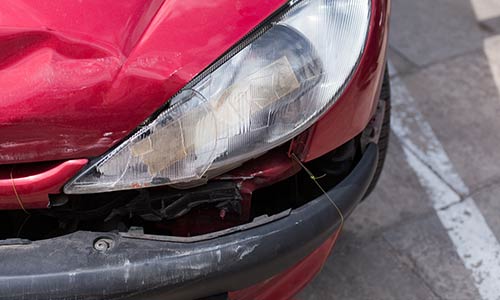
Used car warranty: Should I get one?
Last updated June 28th, 2023
Many people might assume that if you buy a used car, you’ll miss out on some of the perks associated with buying new, such as a car warranty. However, this isn’t always the case.
Although it’s true that warranties are rarely offered if you choose to buy from a private seller, many dealerships do offer used car warranties. Opting for a used car warranty can give you the peace of mind that your repair bills will be taken care of should you encounter issues with your car.
Some dealerships offer warranties by default, whilst others will charge you for this service (or direct you towards a warranty company). Many newer second-hand cars also come with part of their manufacturer warranty still intact.
When you buy a car from a dealership, you should also be protected by the Consumer Rights Act, (which in practice shares some similarities with a warranty).
Although car warranties generally cover the repair and replacement of parts in the event of mechanical or electrical failure, what is covered (and how long the cover lasts) varies between policies.
This means deciphering used car warranties can be tricky for many inexperienced car buyers. So, is a used car warranty worth the extra cost?
In this guide, we’ll look at the typical cost of a used car warranty and what may be covered. We’ll also explain the four main types of used car warranties, what is covered under the Consumer Rights Act – and list a glossary of terms to help you cut through the jargon.
Read on to learn everything you need to know to decide whether a used car warranty is right for you.
Value your car in under 30 seconds
Can you get a warranty on a used car?
Yes, you can – major brand dealers usually offer approved used car warranties, which last 12 months. You can also purchase coverage directly from a dealership or a third-party warranty provider at any time.
Is it worth getting a used car warranty?
Used car warranties are essentially just a type of insurance. Whilst it will cost you money up front, it provides you with the reassurance that if you encounter any of the issues covered under the warranty, you won’t be hit with an unexpected repair bill.
The question of whether a warranty truly provides value for money, however, is up for debate.
For instance, after paying £200 for a warranty, you may need your entire gearbox replacing, making it a worthwhile investment. However, you might also buy an expensive warranty, then encounter an issue that it doesn’t cover, effectively costing you even more money.
Put simply, they are a bit of a gamble. However, to help you make the right decision, you should read any warranties carefully (including the small print) before deciding whether to purchase them, so you know exactly what you’ll be covered for.
How much does a used car warranty cost?
If a used car warranty isn’t included with the car you are buying, the cost of a warranty will depend on a variety of factors, such as the age and mileage of the car, the model - and the level of cover provided by the policy.
You might find the most basic policy for around £200, but you may pay around £500 for more comprehensive policies (and those covering higher-end cars).
Where can you get a used car warranty?
You can obtain a used-car warranty from the dealer, or a specific third-party warranty provider.
What does a used car warranty cover?
What is covered under a used car warranty will vary depending on the policy. Some might be comprehensive and straightforward, whereas others might contain all kinds of exclusions that could stop you making a claim.
Generally speaking, used car warranties don’t cover ‘wear and tear’ components such as clutches, brake pads, tyres and so on. They also won’t cover any faults that were present when you bought the car, so bear this in mind before you buy.
Warranty terms and conditions will often require you to get the car serviced at the manufacturer-recommended intervals and might not pay out if you ignore a warning light. They will also have age and mileage limits too. More expensive policies might cover more things - and the amount claimable will vary depending on the level of cover.
Used car warranty terms and conditions explained
There are many terms and conditions present in a used car warranty - and these will vary from policy to policy. Reading your policy, despite the confusion, is a necessary evil if you want to know what cover you are paying for.
Here is a list of commonly used car warranty terms with explanations for each:
- Age limit: Each car warranty comes with a pre-set age limit.
- Betterment: If a repair or new part makes your car more valuable, you might have to foot some of the bill.
- Claim limit: This is the maximum amount of money you can receive per claim.
- Consequential loss: This refers to when one car part failing damages another. (This is an added expense that not all policies cover.)
- Excess: The percentage of each warranty claim you will have to pay.
- Garage choice: Some providers have ‘approved’ garages.
- Labour rate: How much of a garage’s hourly rate the providers are willing to pay.
- Mileage: Annual or overall mileage limit.
- Pre-existing faults: Any issues your car had before the warranty started may not be covered.
- Regulated provider: Make sure your provider is regulated by the Financial Conduct Authority and you’ll get a 14-day cooling-off period, allowing you to cancel if you change your mind.
- Servicing schedule: You must ensure that your car is serviced at the manufacturer-recommended intervals and retain any paperwork.
- Time limits: Some warranties only allow you to claim after a certain period.
- Warning lights: If you ignore warning lights on your car’s dashboard, the provider may refuse to pay out.
- Wear and tear: Car parts that fail due to wear and tear are usually not covered.
The Consumer Rights Act
Whether or not you have a used car warranty, if you’re buying a used car from a dealer in England, you will be covered by the Consumer Rights Act. This dictates that a used car purchased from a dealer, no matter the age or price, must be:
- Fit for purpose.
- As described in the advertisement.
- Of satisfactory quality (with the vehicle’s age taken into account).
If your car fails to meet any of these criteria within the first 30 days of purchase, you will be entitled to a full refund.
If any of these criteria aren’t met within the first six months of ownership, the fault will be presumed to have existed before you bought the car. At this point, the dealer has one chance to repair the car, otherwise they will have to offer a refund.
Beyond six months, it will be assumed that the fault developed after the car was purchased. Therefore, getting an issue resolved through the Act at this point might be tricky.
Please note: Wear and tear items aren’t covered by the Act, which applies to cars bought from a dealer (and not private individuals).
Used car warranty types
There are four types of used car warranty:
-
Approved used warranties
If you purchase a used car under a manufacturer’s approved used scheme, you should get a reasonably comprehensive warranty included in the sale price. These warranties will usually last between 12 and 24 months, depending on the manufacturer.
-
Dealer-provided warranty
Many independent dealers will offer their own warranty with the used cars they sell. The length of a dealer-provided warranty will vary depending on the dealer and how old the car is.
You might be given a warranty for free (or have the option to buy one). You may also be able to pay to extend the length of your warranty (this applies to both free and paid-for policies).
-
Third-party warranty
You can also purchase a used car warranty directly from a third-party (completely independent from the dealer). Third-party warranties can also cover cars that are bought privately.
These firms offer warranties with varying levels of cover. More comprehensive warranties are usually priced higher.
-
Remainder of manufacturer warranty
The warranty types listed above are available with used cars, but you might also be able to find a used car that is still covered by its manufacturer warranty (which would spare you the expense of purchasing additional cover).
Many car manufacturers offer a three-year/60,000-mile warranty with their new cars (and some offer more generous warranties).
Please note: If you purchase a used car that is still in its warranty period, it will usually need to have been serviced in line with the manufacturer’s recommendations for the policy to remain valid.
Other Frequently Asked Questions
This will vary depending on the dealership or provider, but a used car warranty will often last for 3, 6 or 12 months. (Older vehicles are sometime sold with shorter policies.) Many vehicles sold under ‘approved used’ schemes by franchised dealers are covered by a 12 or 24-month warranty.
When you’re deciding whether to buy a used car, you should at least ask the dealer about the warranty options available to you. Take a close look at what’s offered under each available warranty and decide which (if any) best suits your requirements.
Car warranties can help to cover you financially if your car develops mechanical issues. However, it’s all about the risk and return - and in this respect, buying a car warranty can be a gamble.
No, legally, used car dealers don’t have to offer warranties.





